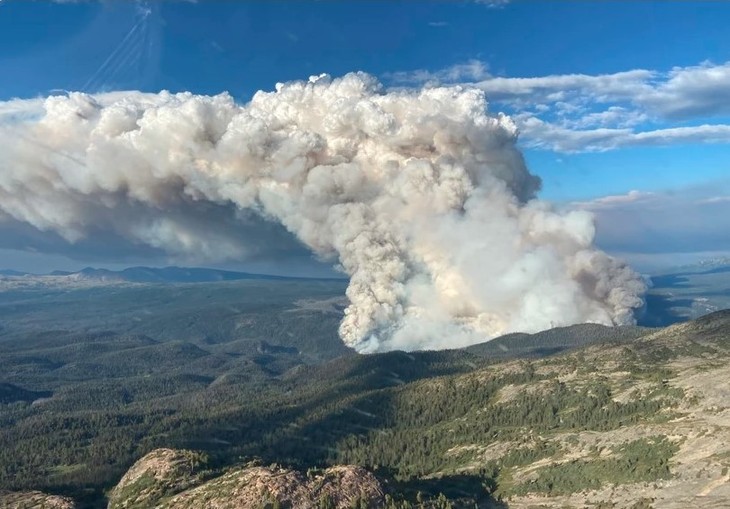(VOVWORLD) - Climate change threatens to cause an additional 14.5 million deaths and 12.5 trillion USD in economic losses worldwide by 2050, according to a World Economic Forum (WEF) report published on Tuesday.
 Smoke rises from a major wildfire in British Columbia (Canada) in July 2023. (Photo: AFP/VNA) Smoke rises from a major wildfire in British Columbia (Canada) in July 2023. (Photo: AFP/VNA) |
The report, jointly compiled by the WEF and consulting firm Oliver Wyman, is based on “scenarios developed by the Intergovernmental Panel on Climate Change on the most likely trajectory for the planet’s rising average temperature” a WEF press release said.
The report analysed six major consequences of climate change: floods, droughts, heat waves, tropical storms, wildfires, and rising sea levels.
Flooding alone is estimated to cause 8.5 million deaths by 2050, posing the highest acute risk of climate-induced mortality, according to the study. Droughts, as the second leading cause of climate-related mortality, are forecast to claim 3.2 million lives. Heat waves, in particular, are expected to cause the highest economic losses, an estimated 7.1 trillion USD, by 2050.
Climate change is one of the main focuses at this year’s WEF. Addressing a panel on protecting the Amazon, planet Earth’s “lung” and its largest tropical rain-forest, Colombian President Gustavo Petro called on countries to “act upon the global financial system” and propose a debt-for-nature swap and allocations of the International Monetary Fund (IMF) ‘s Special Drawing Rights (SDRs).
“What Colombia proposed is not a form of cooperation. We can sponsor and implement necessary climate actions to protect the rain forests ourselves. But we need a flow of 2.5 billion USD a year in order to revitalize deforested spaces. Where will this amount come from? Through debt-for-nature swap and reforming the global financial system,” he said.
 Colombian President Gustavo Petro (center) at the World Economic Forum 2024 in Davos (Photo: Colombia's presidential office) Colombian President Gustavo Petro (center) at the World Economic Forum 2024 in Davos (Photo: Colombia's presidential office) |
Panelists warned that climate crisis will worsen other socio-economic problems, especially in countries and regions most affected by climate change. But they are optimistic about the speed at which renewable energy around the world is developing. According to former US climate envoy John Kerry, with the current resources for renewable energy, it is possible to achieve the energy goals set for 2030.